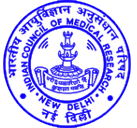Diabetes millitus (DM) is a disease that affects body’s ability to produce or respond to Insulin. Insulin is a hormone that is released in response to food intake. It facilitates both the transport of glucose into cells and its conversion to the energy. it is also required for protein synthesis and storage of excess energy as fat. Blood glucose levels are higher than normal in individuals with diabetes. Symptoms of diabetes include frequent urination, increased thirst, increased hunger and weight loss, despite increased food intake. If left untreated, diabetes can cause acute complications like diabetic ketoacidosis, non-ketotic hyperosmolar coma, and serious infections which may lead to death. Long-term complications include heart disease, stroke, chronic kidney failure, foot ulcers, and damage to the eyes.
• Type 1 DM results from the pancreas's failure to produce insulin. This form was previously referred to as "insulin-dependent diabetes mellitus" (IDDM) or "juvenile diabetes".
• Type 2 DM begins with insulin resistance, a condition in which cells fail to respond to insulin properly. As the disease progresses, eventually no insulin is produced.This form was previously referred to as "non insulin-dependent diabetes mellitus" (NIDDM) or "adult-onset diabetes". It is associated with excessive body weight and sedentary life style.


NUTRITION ATLAS
ICMR-National Institute of Nutrition
Hyderabad,Telangana,India.